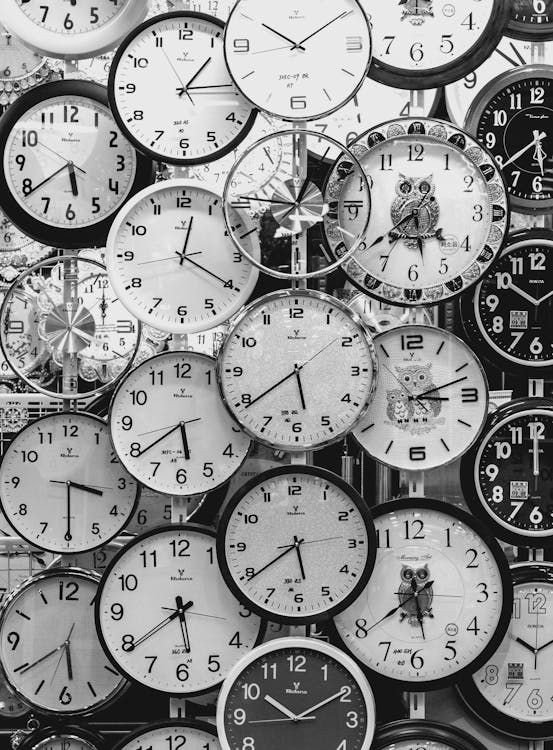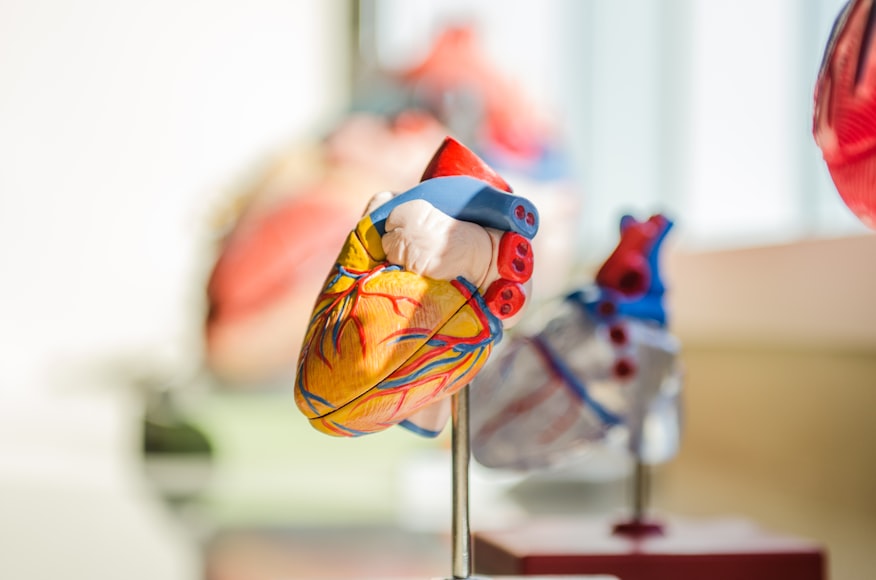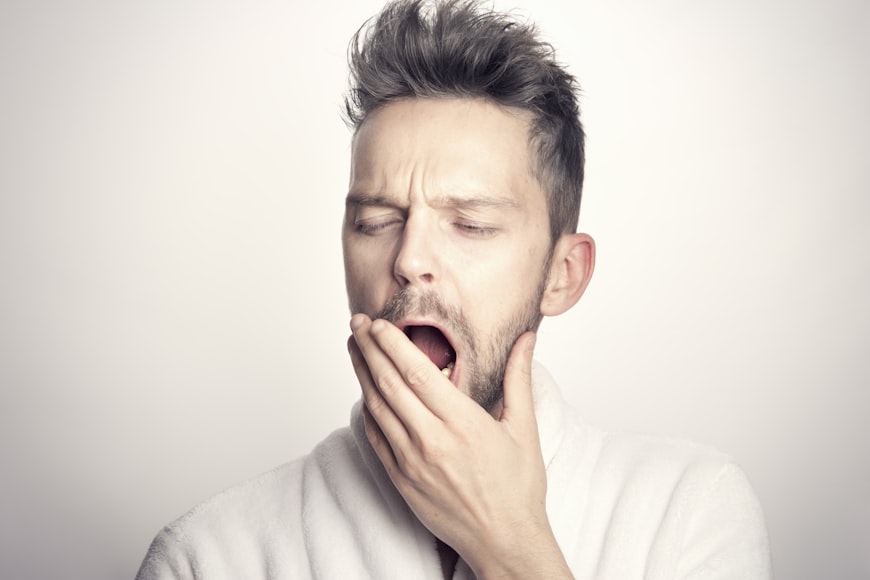What wakes you up every morning? Your phone alarm? Perhaps a traditional alarm clock?


Have you ever realised that sometimes you do not even need an alarm clock: you simply wake up at approximately the same time every day?
This is because our body has its own internal clock. Scientifically speaking this is called a circadian rhythm.
It is known that having poor sleep quality and repeated short sleep duration is related to a higher risk of developing cardiovascular disease. That is because when you sleep your blood pressure goes down, so, when you are not getting enough sleep, your blood pressure is elevated for longer than it should be, putting extra strain on your heart.
What is the circadian clock?
The circadian clock refers to 24-hour cycles in various organ systems which regulate functions necessary for survival.
For instance, our digestive organs (such as liver, stomach and gut) follow their own circadian rhythm. Their circadian clock causes them to secrete proteins for digestion at the typical meal times.
Our endocrine system (a collection of organs and cells to produce and release hormones) has its own circadian clock too: that’s how it knows when to release which hormone to suit the body’s energy needs.
For example, some hormones are released during the day to help the body use energy but at night, when you are asleep, they aren’t secreted.
How does it function?
All in all, there are many circadian clock variations in our body that control different systems. You may be wondering how they stay in check: they are all mastered by and synchronized with the master circadian clock in the brain. This master clock controls your natural sleep-wake cycle and it is influenced by light, which is why it is tied to the day-night cycle.1
So now you might ask: why is everything ultimately tied to light?
This is because the master clock consists of cells that are very sensitive to light and can sense the change from light to darkness.
While other environmental or personal factors such as stress and temperature can affect this cycle, the most influential factor is light.1


Now you know why you have jet lags when you travel across time zones. Your master clock in your brain is set to follow the day-night cycle in your original time zone. When you travel to another time zone, your master clock requires time to adapt to the new environment.
However, in one or two days, the master clock will ultimately change its setting (as it always senses the light-dark pattern in the environment), and you won’t have jet lag anymore - the tiredness and sleepiness are gone!
How does the circadian clock affect cardiovascular health?

If the circadian clock is frequently disrupted over a long period of time, the risk of developing cardiovascular disease increases significantly.
Researchers have found that people with an atypical work schedule (not a 9-5 one) are much more likely to develop a cardiovascular disease. Let’s look at this phenomenon a little closer.
A study investigated 301 workers who either worked permanent morning, evening, or night shifts and found out that the atypical work time has led them to have social jet lag.2
Social jet lag is the existence of a significant time difference between the sleep on workdays and on free days.
For instance, workers with permanent night shifts usually have their sleep from 7am to 3pm during work days. But on weekends, their sleeping time changes to 11pm to 7am. In this case, their circadian clocks are constantly being reset and the regular rhythm is consistently interrupted.
This study discovered that social jet lag is an independent risk factor for developing cardiovascular disease. Each additional hour of social jet lag increased this risk by over 30%.2
You might say that other socio-economic factors (such as stress for these workers) can introduce uncontrolled variables to the study.
Other animal studies have also revealed the negative impact on cardiovascular health brought on solely by disrupted circadian rhythms.
Another study found that mice, when their circadian rhythms are interrupted, can develop cardiovascular diseases such as cardiomyopathy (a disease where walls of the heart chambers have become stretched, thickened or stiff and affects the heart's ability to pump blood around the body) and systolic dysfunction (impaired contraction of the heart), which in severe cases, can lead to cardiovascular death.3
Keeping a regular and healthy circadian rhythm

If you find yourself having no regular sleep-wake pattern, here are some tips to help you establish one:
- Follow a consistent sleep and wake up schedule. Go to bed and wake up every day at around the same time.
- Engage in regular physical activities. Exercise can improve sleep quality and help you build up a healthy sleep-wake cycle. However, be careful not to exercise too close to bedtime. Exercise within 1-2 hours of your bedtime is not recommended as this may make it harder to fall asleep.
- Stay away from light. As mentioned before, the most influential environmental factor for our circadian clock is light. Therefore, exposure to bright light before sleep can interfere with your circadian rhythm and make your brain think that it is still daytime. Putting down your electronic devices an hour before bed may also be helpful, as the bright screen light also interferes with your internal clock.
- Avoid long naps in the afternoon. If you have too much sleep during the day, you will definitely find it difficult to fall asleep at night.
Summary
The circadian clock is an internal clock which regulates different functions in our body that are necessary for survival. It is synchronized with the master circadian clock in the brain which controls the natural sleep wake cycle. The circadian clock in the brain can be disrupted by many different factors and its frequent disruption can lead to an increased risk of developing cardiovascular disease. However, by making a few changes to your daily routine you can maintain a regular and healthy circadian rhythm.
References:
- What Is Circadian Rhythm? | Sleep Foundation [Internet]. Sleepfoundation.org. 2021 [cited 12 December 2021]. Available from: https://www.sleepfoundation.org/circadian-rhythm
- Gamboa Madeira S, Reis C, Paiva T, Moreira C, Nogueira P, Roenneberg T. Social jetlag, a novel predictor for high cardiovascular risk in blue‐collar workers following permanent atypical work schedules. Journal of Sleep Research. 2021;30(6).
- Crnko S, Du Pré B, Sluijter J, Van Laake L. Circadian rhythms and the molecular clock in cardiovascular biology and disease. Nature Reviews Cardiology. 2019;16(7):437-447.






